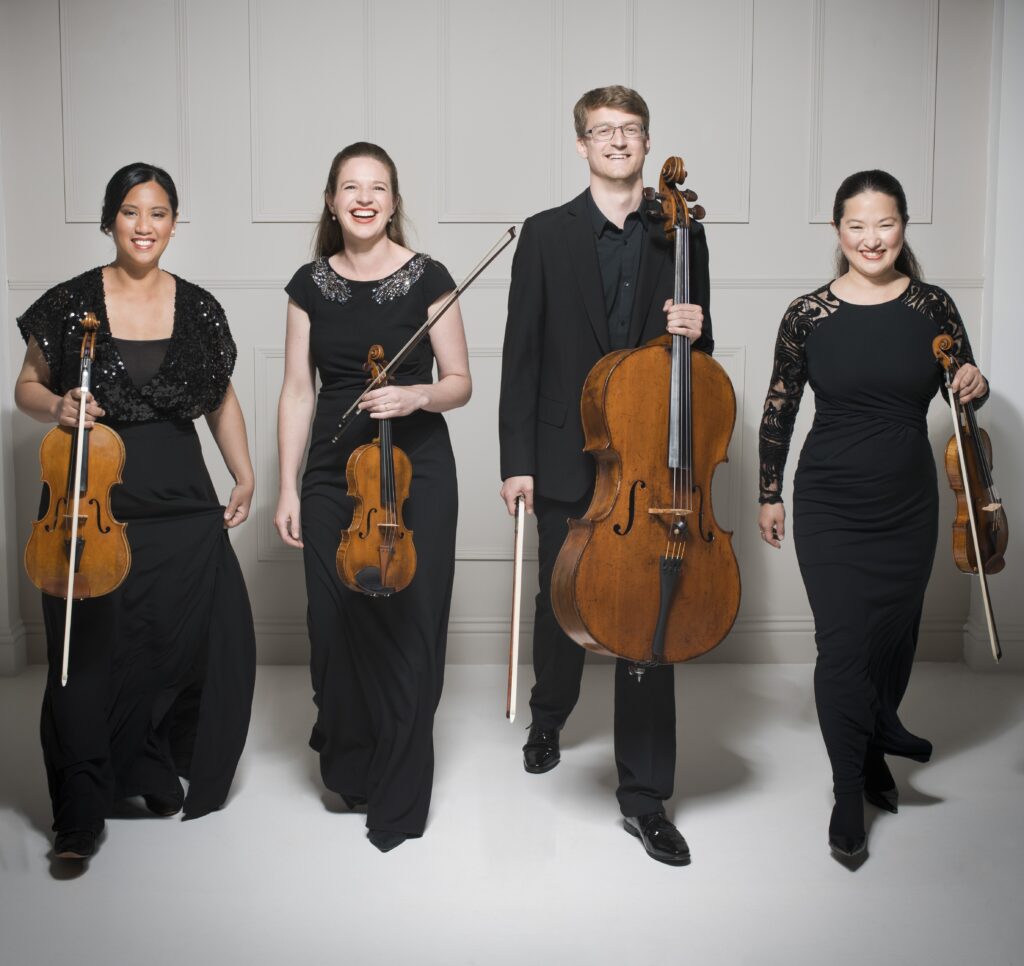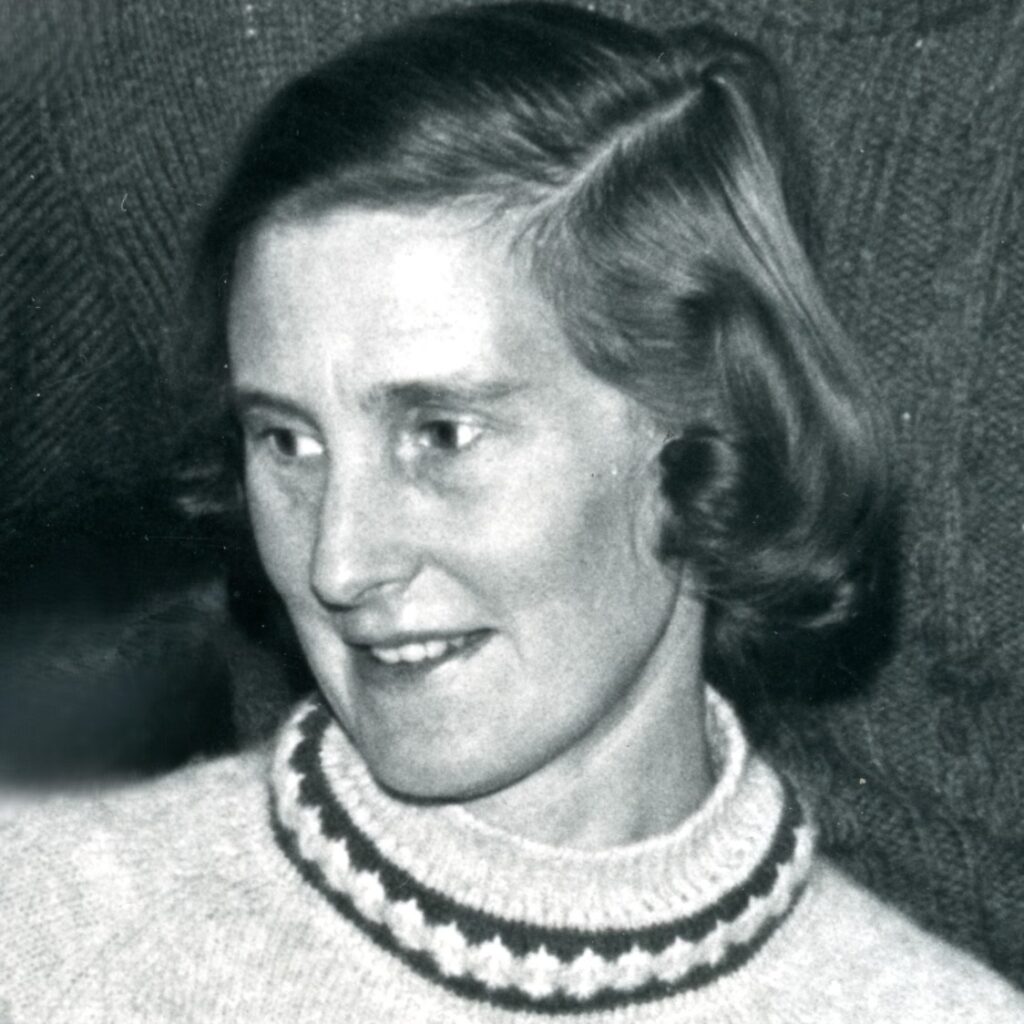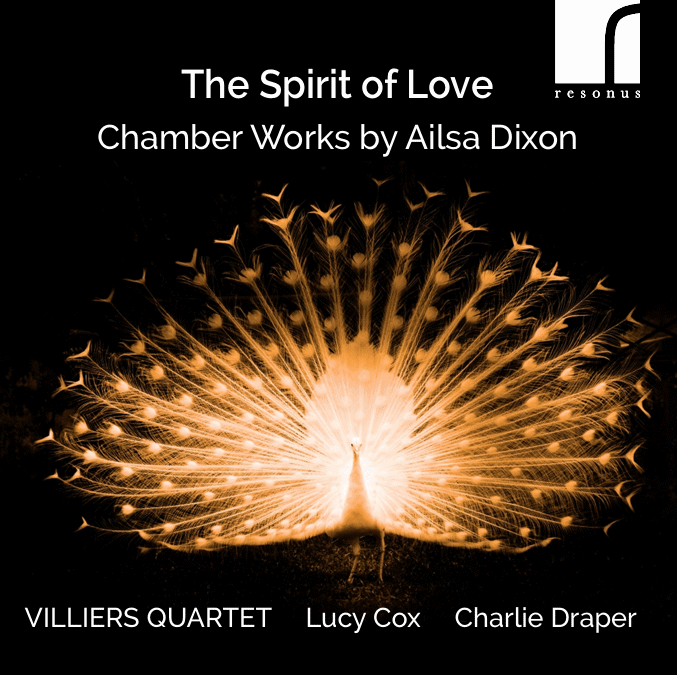After a series of posthumous premieres of works found in her musical archive, the resurgence of interest in Ailsa Dixon’s (1932-2017) music is now being marked by a new recording of her chamber music on the Resonus Classics label.
Supported by the Vaughan Williams Foundation, the recording comes from the pioneering Villiers Quartet, renowned for championing the work of British composers.
Alongside the recording to be released on 22 August 2025, Dixon’s musical scores are being published for the first time by Composers Edition. To launch this initiative, the works featured on the recording were published on the eighth anniversary of her death in August.
Further works will be published during the autumn, including many songs, choral music, works for lutes and viols, and a sonata for piano duet.
Lost works rediscovered and a premiere recording
Two of the works on the Villiers Quartet’s recording were unperformed during Dixon’s lifetime, and all of them remained in manuscript until I began working through the musical archive she left after her death, getting the scores digitised and collaborating with musicians on concert performances.
The Spirit of Love, a set of songs for soprano and string quartet, gives the title to this recording of works from Ailsa Dixon’s most fertile period of composition in the 1980s and 1990s. It was premiered posthumously by the performers on this recording, at St George’s Bristol in February 2020, where a spellbound reviewer for the British Music Society registered ‘a feeling that something special had just occurred.’

When performed at the Nottingham Chamber Music Festival in 2024, the songs were hailed as a ‘stunning find’, with their ‘lush harmonies’ and ‘strange yet still beautiful dissonances’. The soaring soprano lines above the quartet give these songs a transcendent quality.
That magic is beautifully created on this recording by singer Lucy Cox and the Villiers Quartet, in performances of radiant intensity and finesse. When the first song, As the harmonic to the sounding string, was released as a single by Resonus Classics in July, it was immediately featured on Georgia Mann’s Essential Classics on BBC Radio 3.
The recording also features the premiere performance of Dixon’s earliest known work, a Scherzo for string quartet composed while she was at Durham University in 1955. It was believed to be lost until the manuscript, in faded blue ink, turned up in an attic after she died.
This delightful, mercurial piece, which earned her the Kisch Prize, shows remarkable confidence for a 22-year old, and already bears some of the hallmarks of her compositional style. Thanks to this new recording, it can now be heard for the first time, 70 years after it was written.

The most unusual track on the recording, Shining Cold, features a rare combination of instruments, in which soprano, viola and cello are joined by the ondes Martenot, played by Charlie Draper. An early electronic instrument dating from the 1920s, its eerie, shimmering and swooping sounds have featured in film soundtracks from Lawrence of Arabia to Ghostbusters, and Messiaen’s Turangalîla Symphony.
Unusually, Ailsa Dixon pairs it with voice and strings to explore their contrasting sonorities in a haunting vocalise. The Villiers Quartet’s viola player Carmen Flores described the recording as a ‘unique experience’ and ‘a very special sound’.
The album is the latest addition to the award-winning list of Resonus Classics, known for high resolution recordings of diverse and eclectic repertoire by an international roster of composers and performers.
Publishing the scores
It is rare for a composer’s entire oeuvre to remain unpublished in their lifetime despite significant public performances of their music. This gives a historic dimension to the publication of Ailsa Dixon’s scores eight years after her death.
Dozens of works left in manuscript in her private archive have been digitised and edited, to produce performing scores which will now be accessible to amateur and professional musicians alike.
Recognising the importance of this endeavour, some of the musicians who gave these works their first performance have been involved in editing the scores of works coming out this year. Lutenist Lynda Sayce, who gave Ailsa Dixon’s 3 Fugues on Biblical Subjects their first performance on a multi-tracked home recording during the 2020 lockdown, has now edited them for publication.
Waka Hasegawa, one half of the piano duo Piano4hands who premiered her sonata for piano duet, Airs of the Seasons, has produced a performing edition. Joshua Ballance’s string orchestra arrangement of Ailsa Dixon’s Nocturnal Scherzo (originally for string quartet) was premiered at the High Barnet Chamber Music Festival in 2022, and will now be published for future performances by orchestras interested in exploring this new repertoire.
These landmark publications are available from Composers Edition, an independent publishing enterprise serving composers, performers and champions of contemporary music-making.
Founder Dan Goren said of the new acquisition to their list: “Bringing hitherto under-represented music to wider attention is in the DNA of Composers Edition, so we are delighted to be publishing the treasure-trove of works by Ailsa Dixon. Here is music of real intelligence and instinct – direct, fresh and captivating.”
The recording and publication of Ailsa Dixon’s works represents a significant milestone in the revival of her music, which began in 2017 with the premiere of her anthem These things shall be shortly before she died.
This belated recognition – shared with many women composers – left many works unheard in her lifetime, but the Shakespeare sonnet she chose to be read at her funeral suggests that she cherished a hope that her compositions would survive her.
‘Since brass, nor stone, nor earth, nor boundless sea’ is a ‘fearful meditation’ on the inexorable destruction wrought by time, countered at the end with a fragile note of defiance: ‘unless this miracle have might, That in black ink my love may still shine bright’.
A succession of posthumous premieres, the recording of her chamber music, broadcast on Radio 3, and now the publication of her scores have fulfilled that hope beyond her wildest dreams.
Written by Josie Dixon

